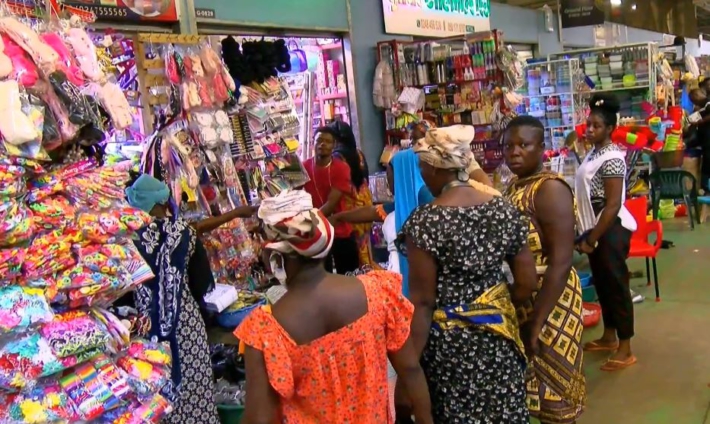Data from the Bank of Ghana indicates a downward trajectory of both consumer and business confidence in the general economy since the end of 2020.
Both the Consumer and Business Confidence Indices have consistently been below the 100 mark since January 2021.
The consumer confidence index has averaged 86.13 during this period while the business confidence index averaged 88.19 in the same period.
Meanwhile, the confidence indices for consumers and businesses dropped to all-time lows of 73.9 and 72.6 respectively in October 2022. In December 2022, the indices improved to 79.2 for consumer confidence and 75.7 for business confidence.
According to the Bank of Ghana, consumer confidence improved on the back of the reductions in ex-pump petroleum prices and transportation fares in December 2022.
Business confidence also turned positive due to achievement of short-term targets and confidence about company and industry prospects, following the appreciation of the local currency during the month.
The confidence indices
Consumer confidence index (CCI) measures how optimistic or pessimistic consumers are regarding their expected financial situation.
The CCI is based on the premise that if consumers are optimistic, they will spend more and stimulate the economy but if they are pessimistic then their spending patterns could lead to an economic slowdown or recession.
According to the Organisation for Economic Co-operation and Development (OECD), an indicator above 100 signals a boost in the consumers’ confidence towards the future economic situation, as a consequence of which they are less prone to save, and more inclined to spend on major purchases.
Values below 100 indicate a pessimistic attitude towards future developments in the economy, possibly resulting in a tendency to save more and consume less.
The business confidence index provides information on future developments, based upon opinion surveys on developments in production, orders and stocks of finished goods in the industry sector.
It can be used to monitor output growth and to anticipate turning points in economic activity.
Ghana’s Real Composite Index of Economic Activity (CIEA)
The annual growth of Bank of Ghana’s Real CIEA also shows a dip to an all-time low in November 2022 of -6.2%. This is indicative of a worsening outlook on domestic economic activity.
This indicator has moved from 39.4% in April 2021 and slid continuously to 10.2% in November 2021 and by November 2022 moved to -6.2%.
It is worth mentioning that the second half of the 2022 economic year was characterized by high fuel prices, high inflation and excessive depreciation of the Ghanaian cedi and this may explain why economic indicators showed negative growth especially during this period.
Read also:
Latest Stories
-
Nduom hints at #BringBackGNBank nationwide campaign
4 mins -
GWCL staff locked up, assaulted for disconnecting defaulter
58 mins -
Akufo-Addo, Asantehene commission Prempeh I International Airport, Kumasi
1 hour -
We are confident about board meeting in June on Ghana’s second review – IMF
1 hour -
Eugene Osei Tutu: Who can lay claim to Kumasi International Airport- Mahama or Akufo-Addo?
1 hour -
Mbappe confirms he leaves Paris St-Germain
1 hour -
CAA Region II Athletics Championships will be properly organised – Dr Baah-Nuakoh
2 hours -
Over 185 state bungalows for public servants near completion in Ashanti Region
2 hours -
I want scouts, agents to believe there are better players in Africa than me – Mohammed Kudus
2 hours -
NPP’s Mpohor treasurer arrested for allegedly aiding the registration of a minor
3 hours -
Davido hints at retirement after next album
3 hours -
Dr Baah-Nuakoh chairs Ghana’s organisation of Athletics Championships next month
3 hours -
Speaker of Parliament has not breached Standing Orders – Dafeamekpor
3 hours -
Ghana Cocoa Board refunds $250m loan procured from ADB for irrigation in cocoa farms
4 hours -
6 out of 10 registered deaths in 2022 were males – Births and Deaths Registry
4 hours

